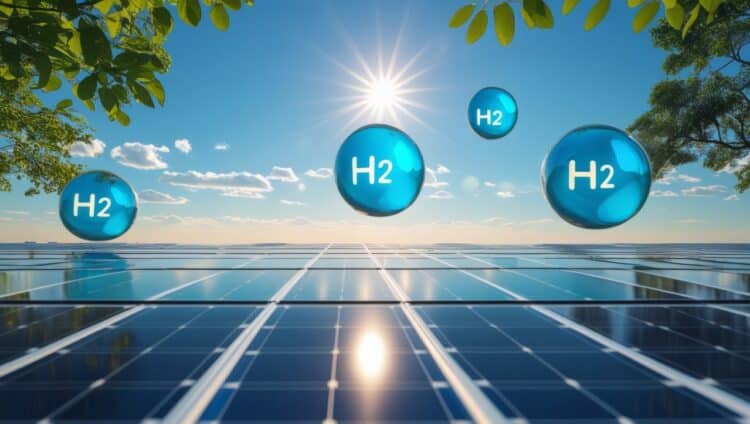A pioneering facility designed to generate hydrogen straight from water, bypassing the need for electrolysers, is progressing confidently. Sparc Technologies, Fortescue, and the University of Adelaide have signed agreements to advance to the project’s second phase.
In this next stage, Sparc Technologies will concentrate on building and testing a unique pilot plant that will assist in the ongoing development and scaling of reactor technology.
Advancements in Green Hydrogen Technology
The company expressed that the transition to stage two is a testament to the significant milestones that have been reached. This decision is a strong affirmation of Sparc Hydrogen’s innovative technology, which has the potential to facilitate the production of low-cost green hydrogen through photocatalytic water splitting (PWS).
This groundbreaking reactor technology uses a photocatalyst along with sunlight to produce green hydrogen directly from water without relying on traditional electrolysers.
Leading Research and Development Facility
Sparc Technologies is optimistic that the pilot plant will emerge as a leading global centre for research, development, and commercialisation of PWS, solidifying Sparc Hydrogen’s position as a frontrunner in the newly developing solar-to-hydrogen sector.
Front-end engineering and design (FEED) for the pilot plant has been completed, with construction anticipated to begin in early 2025.
Support from Industry Leaders
Nick O’Loughlin, Managing Director of Sparc Technologies, conveyed his satisfaction in moving to the second phase of the joint venture alongside esteemed partners. “A considerable amount of effort has gone into making this investment decision, highlighting the capabilities of our R&D team, our solid intellectual property position, and the technology’s significant potential to produce low-cost green hydrogen without depending on electrolysers and the existing electricity grid system,” he stated.
Michael Dolan, Director of Research and Development at Fortescue, expressed his pride in continuing to support Sparc Hydrogen and its cutting-edge photocatalytic water splitting technology. “This Australian innovation demonstrates the potential to enhance the competitiveness of green hydrogen by separating its cost from that of green energy,” he noted. “The upcoming pilot plant will allow for the evaluation of this promising technology at a substantial scale, paving the way for future commercial applications.”
University’s Commitment to Innovation
Professor Anton Middelberg, Deputy Vice Chancellor (Research) at the University of Adelaide, stated that the university is delighted to be part of the next phase of developments in photocatalytic water splitting, building on the research carried out by Professor Greg Metha and his team. “The core intellectual property developed by Professor Metha pertains to PWS reactors functioning under concentrated solar energy. This investment in a pilot plant will enable us to rigorously evaluate globally developed catalysts and boost South Australia’s competitive edge in testing novel hydrogen technologies,” he added.
